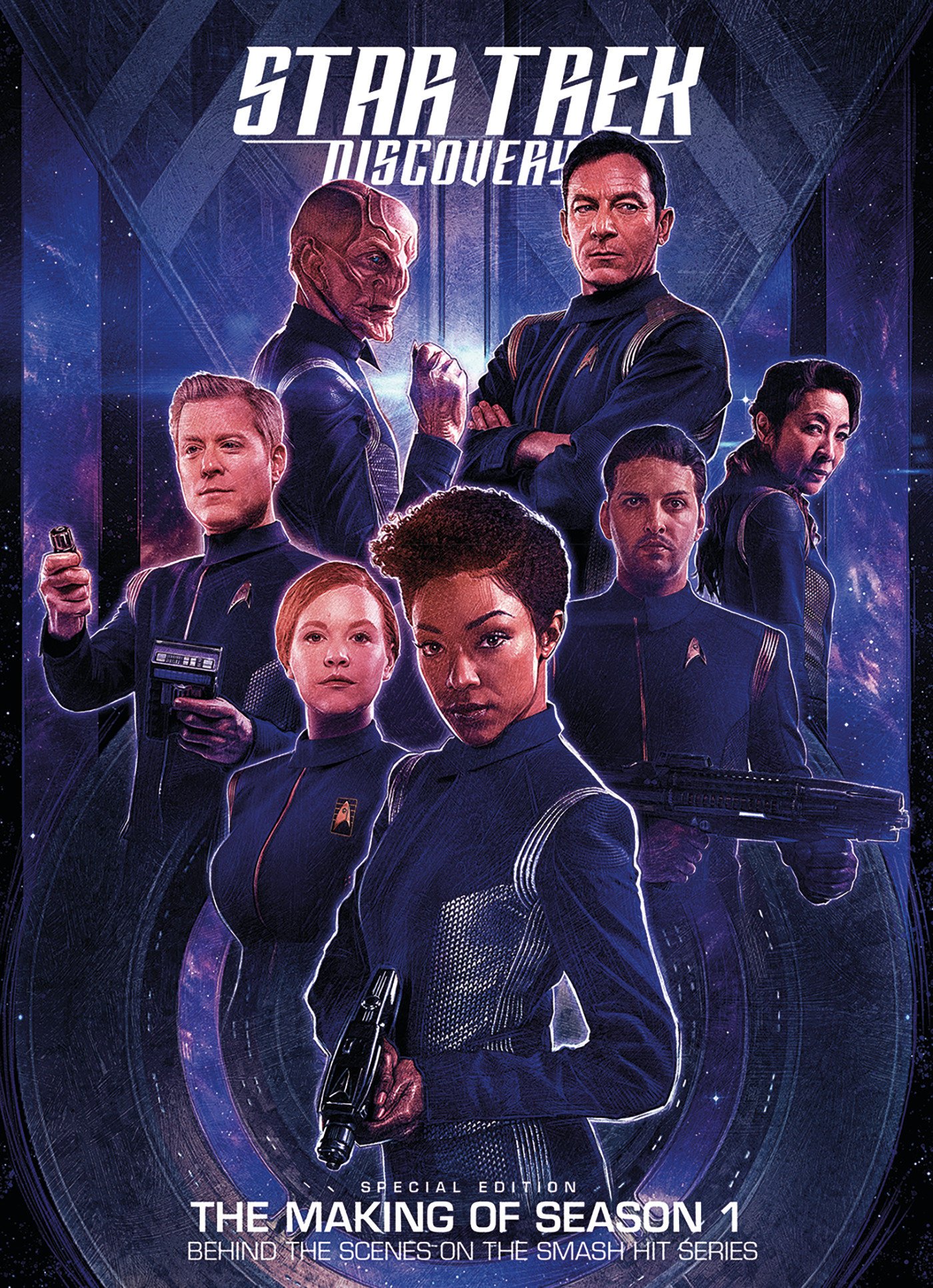A Carnival of Ideas
Tuesday, December 1, 2020 at 3:19am

From its inception, Star Trek has been a driver for societal change. The original series had a diverse cast at a time when it was difficult for many Americans to accept the idea of people of different racial and ethnic backgrounds cooperating in an attitude of mutual respect. The series also contained multiple instances of interracial kisses, again at a time when this would have been an audience shocker.
Star Trek: The Next Generation continued the trend, providing a wide variety of episodes that used alien societies to broach culturally sensitive topics. In terms of breaking long-standing power norms, Star Trek: Deep Space Nine gave the franchise its first black captain and Star Trek: Voyager its first female captain.
Star Trek: Enterprise made some weak attempts in this direction, but mostly eschewed this element of Star Trek’s franchise history. The Abrams movies appeared unaware that it had ever existed.
From the outset of Discovery, it is clear we are back within the progressive vision of Gene Roddenberry. Discovery opens with a captain and her first officer completing a mission on an alien planet, all the time talking about the first officer’s career advancement opportunities. Both individuals are women, and thus the show passes the Bechdel test within its first five minutes.
The other element I appreciated was the inclusion of the first openly gay characters in the show’s main cast. I particularly liked how this was handled, as the gay characters in question are Discovery’s chief engineer and chief medical officer—that they are skillful, principled, emotionally balanced professionals. This stands in stark contrast to the common media stereotype, in which gay men are portrayed as flighty, vapid, emotionally unbalanced art-and-drama enthusiasts. The US version of Queer as Folk, for all the good it did in pushing the boundaries of what was possible on television, fell quite deeply into these stereotypes. The gay men it depicts are: an anti-intellectual, emotionally abusive corporate shill, a mediocre accountant who is so bad at his job that he gets fired from it and becomes a producer of internet pornography, a comic book store owner who has never grown up emotionally past the age of twelve, and a high school kid whose career choice of artist, while a noble one, does nothing to break the stereotype.
Discovery’s chief engineer and doctor are regarded by their crew first and foremost for their professional expertise. No one assumes that the chief engineer must be more interested in fashion than his technical projects. Especially for myself and my own background, I could not help but love this element of Discovery.
If the show had only managed to break all these boundaries, it would be an accomplishment enough, but Discovery manages to integrate such characters seamlessly into the narrative rather than having it feel as many stories do, that characters are tokens of an identity rather than a genuine expression of that identity.
Also in stark contrast to Star Trek: Enterprise and the Abrams movies, Discovery eschews simplistic conceptions of “good” and “evil.” Characters who jump to simplistic understandings of such things end up dead, while the ones who use their intellect and keen instinct to navigate nuance are the ones who thrive. Discovery is also effective at using individual stories to add up to something greater than the sum of their parts. Rather than one continuous unbroken drama, the majority of episodes are capable of standing alone, each containing a fulfilling narrative arc.
Despite all that is good about the series, I feel there are some aspects of Discovery that don’t quite succeed. The element of the show that touches on social development, on healthy versus unhealthy societies, is often painfully forced. The finale goes as far as to have the main character spell out the season’s major themes for the audience (although presumably she is addressing the Federation council; why they need to know how morally upright they all are, I have no idea).
And, while the writing is surprisingly nuanced in its handling of good and evil, the actual plot construction of many episodes relies overly much on physical and military conflict. This caused the show to drag at times. Particularly when the Klingons would show up, I would wait patiently for the fighting/idolatrous posturing to cease and for the interesting elements of the storytelling to resume. Even though the episodes form a coherent narrative, even though the whole is greater than the sum of its parts, I was left feeling as though the only point was the projection into the present of one element of Star Trek’s past. Discovery does not tread new ground so much as it recasts an old ideology with modern trappings. It presents a carnival of interesting ideas, many borrowed from previous installments in the franchise, all of them tied meticulously together, but lacking original substance.
Star Trek: Discovery does not reach the pinnacle of The Next Generation nor even of Voyager’s best outings, but it is certainly does represent a return to the franchise’s moral and ethical roots, and that alone, especially in the current social and political climate, is a feat worth recognizing.









